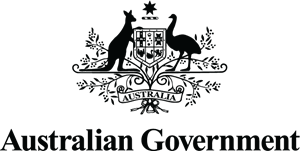
Posted: 21 February 2024
The Australian Government is providing $50 million to develop and commercialise the world’s most advanced artificial heart, a technology that could halve deaths from heart failure globally and contribute $1.8 billion to Australia and Australian society.
The Albanese Government is providing $50 million to develop and commercialise the world’s most advanced artificial heart, a technology that could halve deaths from heart failure globally and contribute $1.8 billion to Australia and Australian society.
The $50 million is the third-largest grant in the nearly ten-year history of the Medical Research Future Fund (MRFF).
The Artificial Heart Frontiers Program brings together five universities, three clinical partners and an Australian-grown company to develop three transformative, next-generation cardiac technologies, collectively known as the Total Artificial Heart.
Every year, over 23 million people around the world suffer from heart failure, but only 6,000 will receive a donor heart.
Nearly 500,000 Australians live with heart failure. Each year, around 60,000 Australians are diagnosed with the condition, and 60,000 are hospitalised for it.
Approximately 100 patients undergo a heart transplant each year for advanced heart disease, but many more do not get the chance.
Unlike previous devices, the Total Artificial Heart uses state-of-the-art magnetic levitation technology that promises to be durable for more than 10 years, is small enough to implant in a child, and powerful enough for an adult.
The Total Artificial Heart will allow patients to maintain an active lifestyle and improve their quality of life.
If successful, the devices will save millions of lives globally, halving deaths from heart failure.
The $50 million provided by the Albanese Government will help position Australia as the home of next-generation cardiac devices, developing and commercialising a pipeline of technology while retaining and attracting the field’s best and brightest minds.
Over the next 15 years, the project is expected to contribute $1.8 billion to Australia and Australian society, including savings to the healthcare system, an industry expansion in research and manufacturing, the creation of over 2,000 jobs, and giving Australians patients early access to clinical trials and emerging life-saving technologies.
The Monash University-led consortium includes the following partners:
Industry partner: BiVACOR
University partners: Monash University; University of Sydney; University of New South Wales; Griffith University; University of Queensland
Clinical partners: The Alfred; Baker Heart & Diabetes Institute; St Vincent’s Health Australia
Quotes attributable to Minister Butler:
“As well as the obvious health benefits, this is an incredible story of Australian ingenuity and sovereign manufacturing, with collaboration across universities, clinical hospitals and industry to develop the world’s most advanced artificial heart.”
“The $50 million provided by the Albanese Government makes this the third-largest grant in the nearly ten-year history of the Medical Research Future Fund.”
“This will give hope to the half a million Australians who suffer from heart failure. The Australian technology has the potential to halve deaths from heart failure, create thousands of jobs, and contribute $1.8 billion to Australia and Australian society.”



